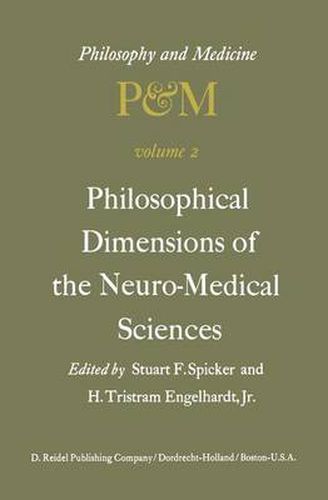Readings Newsletter
Become a Readings Member to make your shopping experience even easier.
Sign in or sign up for free!
You’re not far away from qualifying for FREE standard shipping within Australia
You’ve qualified for FREE standard shipping within Australia
The cart is loading…






This title is printed to order. This book may have been self-published. If so, we cannot guarantee the quality of the content. In the main most books will have gone through the editing process however some may not. We therefore suggest that you be aware of this before ordering this book. If in doubt check either the author or publisher’s details as we are unable to accept any returns unless they are faulty. Please contact us if you have any questions.
Although the investigation and regulation of the faculties of the human mind appear to be the proper and sole concern of philosophers, you see that they are in some part nevertheless so little foreign to the medical forum that while someone may deny that they are proper to the physician he cannot deny that physicians have the obliga tion to philosophize. Jerome Gaub, De regimine mentis, IV, 10 ([10], p. 40) The Second Trans-Disciplinary Symposium on Philosophy and Medicine, whose principal theme was ‘Philosophical Dimensions of the Neuro-Medical Sciences,’ convened at the University of Connecticut Health Center at the invitation of Robert U. Massey, Dean of the School of Medicine, during May 15, 16, and 17, 1975. The Proceedings constitute this volume. At this Symposium we intended to realize sentiments which Sir John Eccles ex pressed as director of a Study Week of the Pontificia Academia Scientiarum, CiWl del Vaticano, in the fall of 1964: Certainly when one comes to a [study] … devoted to brain and mind it is not possible to exclude relations with philosophy ([5], p. viii). During that study week in 1964, a group of distinguished biomedical and behavioral scientists met under the director ship of Sir John C. Eccles to relate psychology to what Sir John called ‘the Neurosciences. ’ The purpose of that study week was to treat issues con cerning the functions of the brain and, in particular, to concentrate upon the relations between brain functions and consciousness.
$9.00 standard shipping within Australia
FREE standard shipping within Australia for orders over $100.00
Express & International shipping calculated at checkout
This title is printed to order. This book may have been self-published. If so, we cannot guarantee the quality of the content. In the main most books will have gone through the editing process however some may not. We therefore suggest that you be aware of this before ordering this book. If in doubt check either the author or publisher’s details as we are unable to accept any returns unless they are faulty. Please contact us if you have any questions.
Although the investigation and regulation of the faculties of the human mind appear to be the proper and sole concern of philosophers, you see that they are in some part nevertheless so little foreign to the medical forum that while someone may deny that they are proper to the physician he cannot deny that physicians have the obliga tion to philosophize. Jerome Gaub, De regimine mentis, IV, 10 ([10], p. 40) The Second Trans-Disciplinary Symposium on Philosophy and Medicine, whose principal theme was ‘Philosophical Dimensions of the Neuro-Medical Sciences,’ convened at the University of Connecticut Health Center at the invitation of Robert U. Massey, Dean of the School of Medicine, during May 15, 16, and 17, 1975. The Proceedings constitute this volume. At this Symposium we intended to realize sentiments which Sir John Eccles ex pressed as director of a Study Week of the Pontificia Academia Scientiarum, CiWl del Vaticano, in the fall of 1964: Certainly when one comes to a [study] … devoted to brain and mind it is not possible to exclude relations with philosophy ([5], p. viii). During that study week in 1964, a group of distinguished biomedical and behavioral scientists met under the director ship of Sir John C. Eccles to relate psychology to what Sir John called ‘the Neurosciences. ’ The purpose of that study week was to treat issues con cerning the functions of the brain and, in particular, to concentrate upon the relations between brain functions and consciousness.